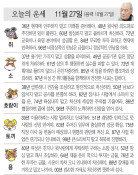Multinational companies’ notable lack of social contributions in Korea
Multinational companies’ notable lack of social contributions in Korea
Posted November. 27, 2024 07:49,
Updated November. 27, 2024 07:49
Despite the economic downturn in 2024, some foreign retail and luxury companies posted remarkable earnings in Korea. Costco Korea, a U.S.-based warehouse retailer, saw a 15.8% increase in operating profit for its fiscal year (September 2023–August 2024), reaching 218.6 billion won. Its sales revenue for the same period totaled approximately 6.53 trillion won, driven by demand for cost-effective bulk products amid inflation. Costco Korea plans to remit 150 billion won, about 67% of its net profit, to its U.S. headquarters as dividends.
In stark contrast, Costco Korea's donations totaled just 1.22 billion won this year—only 0.8% of the remitted dividends, falling short even of the 1% mark. Its workforce of 7,351 employees is also less than half that of its competitor, Homeplus, with a similar annual revenue and 19,795 employees.
While Costco may appear indifferent to social responsibility in Korea, its U.S. operations tell a different story. According to its 2023 sustainability report, Costco donated over $75 million to hundreds of organizations last fiscal year via various charity programs and subsidies and provided approximately $10 million through scholarship funds for low-income students.
Costco, which entered Korea in 1989, operates 19 stores, the sixth-largest number globally, following the U.S., Canada, Mexico, Japan, and the U.K. While direct comparisons to its U.S. contributions may be unfair, its donation levels in Korea seem disproportionately low given its local earnings.
It is widely known that luxury companies operating in Korea are rather miserly when it comes to local donations. French luxurious brand Dior donated 19.2 million won in Korea after earning more than 1 trillion won in sales revenue and joining the One Trillion Club. With sales revenue of 1.65 trillion won, Louis Vuitton has not made a single donation since 2020 when it started filing its financial audit report locally. All of these companies aforementioned actively engage in philanthropy in their home countries—for instance, LVMH, Louis Vuitton's parent company, donated 200 million euros (approx. 293.6 billion won) for reconstruction of Notre-Dame Cathedral after the 2019 fire.
Corporate social contributions are not mandatory. It is rather tricky to criticize local branches for sending what they earned to their headquarters to raise shareholders' values while complying with local laws. However, amid heightened demands around corporate social responsibility and roles, the lack of philanthropy from foreign firms achieving significant profits in Korea is disheartening.
Costco and those luxury companies make little effort in local donations because they know that Korean consumers will continue to favor their products regardless. Hopefully, more and more businesses see giving back to and reinvesting in the local community where they earn their profits as a natural responsibility. For that to happen, a broader cultural shift is needed, where consumers start to prioritize the social responsibilities of those companies.
Headline News
- Trump’s proposed tariffs on Mexico, Canada, and China spark global trade concerns
- Samsung C&T and partners secure 5.2 trillion won Qatar plant order
- Seoul launches early-morning autonomous bus service
- Kiwoom Heroes signs with outfielder Yasiel Puig
- Lee acquitted of subornation of perjury charges in first trial







